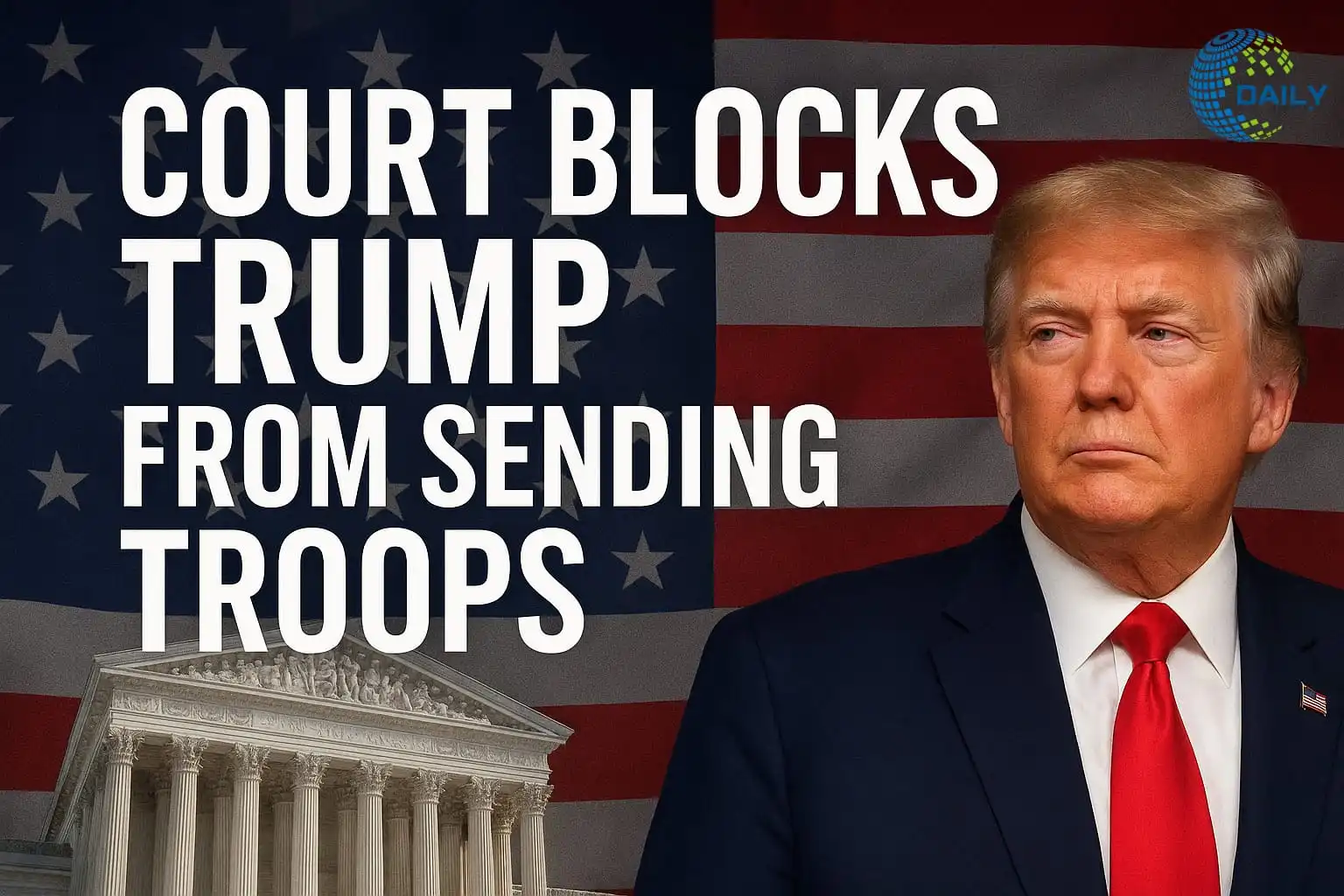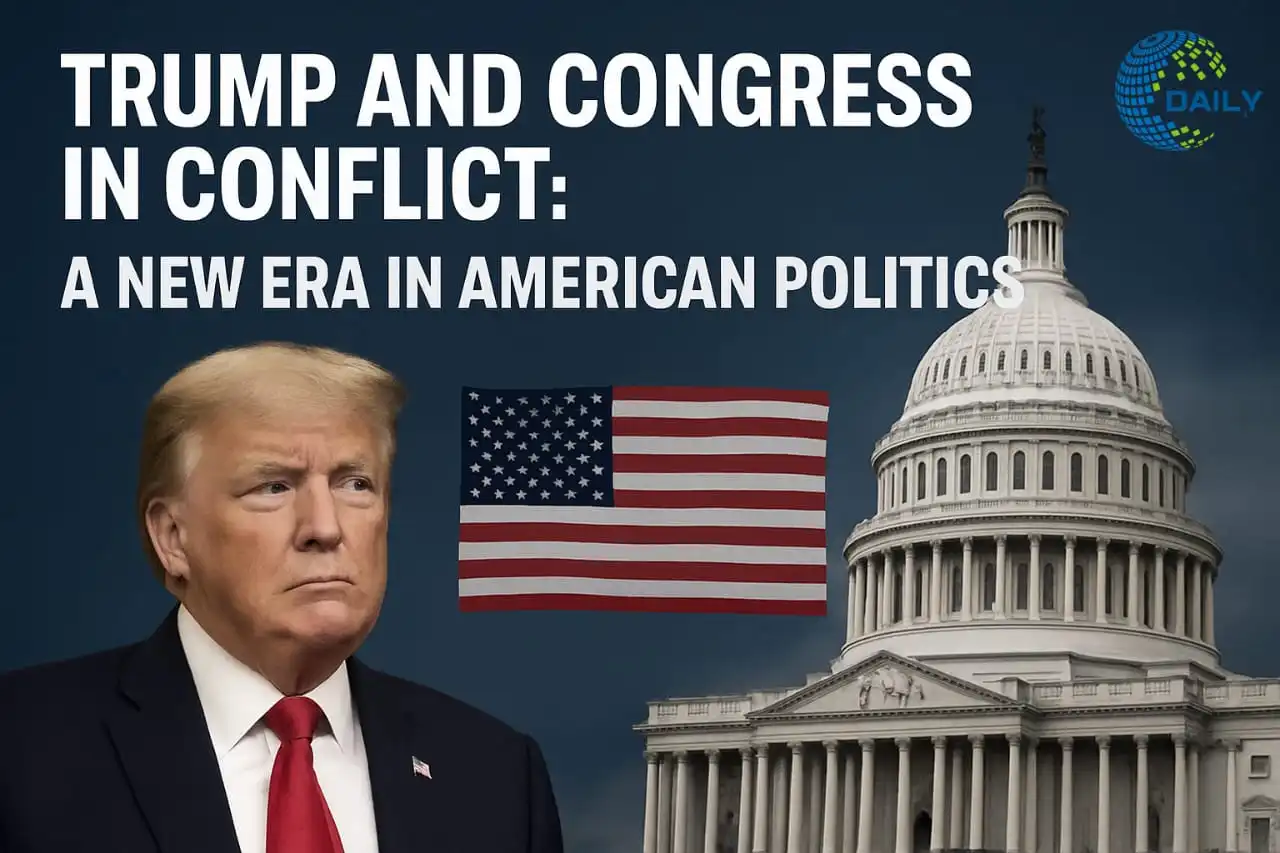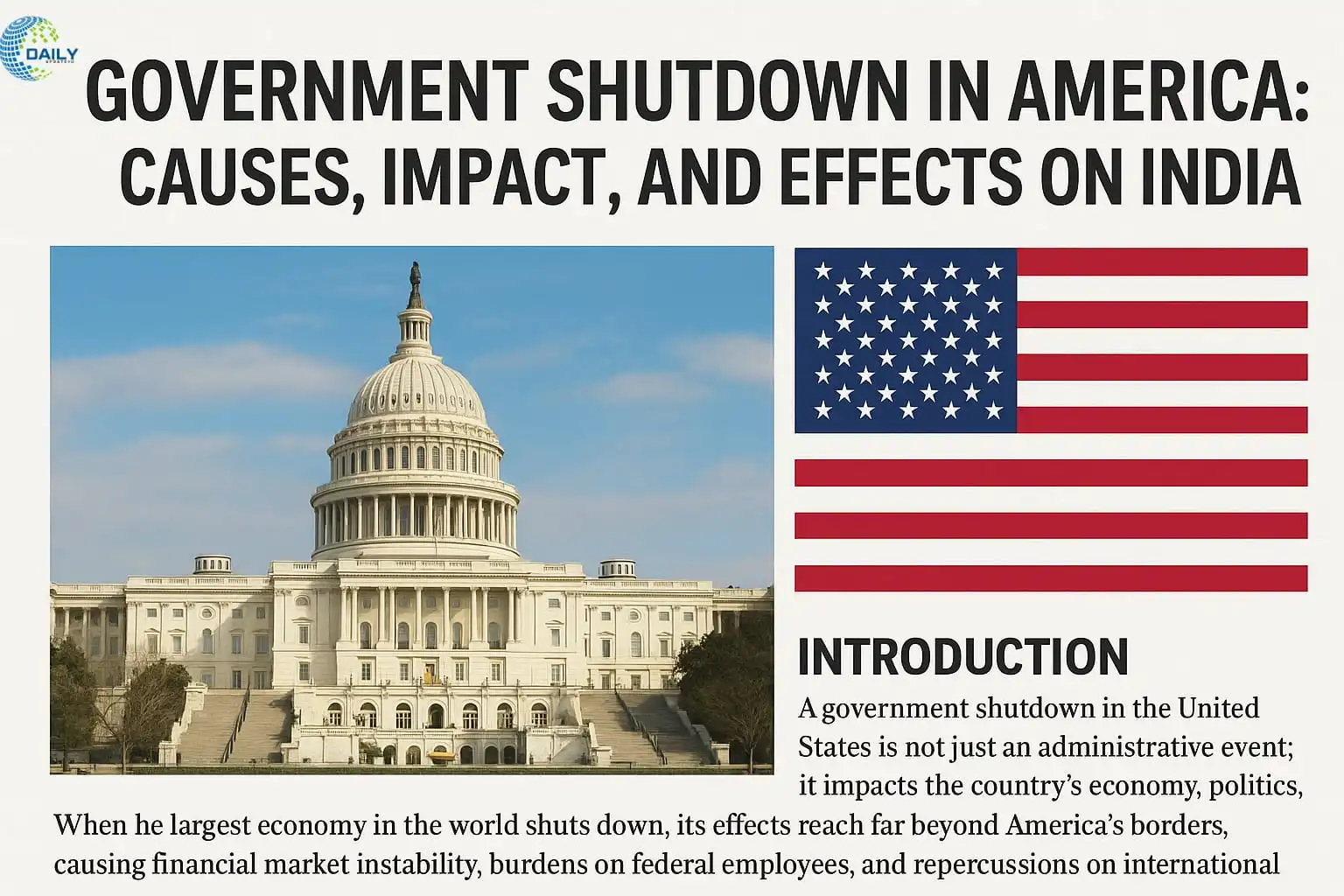
A major constitutional conflict has once again erupted in the US over the rights of the federal government and states. Recently, a federal court temporarily blocked former President Donald Trump’s administration from deploying 200 Oregon National Guard troops to Portland. This decision has stirred American politics and sparked heated debate across the country.
This incident is not merely an administrative order, but rather highlights the depth of federal versus state rights enshrined in the US Constitution. Let’s understand the entire issue in detail.
➡ Growing Protests in Portland and the Trump Administration’s Response
Portland, a major city in the state of Oregon, has been at the center of political demonstrations and law and order challenges over the past few months.
On several occasions, protests have turned violent, leading to attacks on government buildings, arson, vandalism, and stone-throwing at police.
The Trump administration linked this situation to “national security,” arguing that if the state government fails to handle the situation, the federal government has an obligation to intervene and restore law and order. To this end, the Trump administration ordered the deployment of 200 Oregon National Guard troops.
➡The Trump Administration’s Approach—”Law and Order First”
The Trump administration has long emphasized the slogan of law and order.
Trump believed that state governments often withhold stricter measures for political reasons, leading to a breakdown in law and order.
The federal government has the authority to take steps to protect “internal security,” especially when local authorities appear to be failing.
According to him, the situation in Portland had deteriorated to such an extent that it would be difficult to control it without federal intervention.
In his speeches and on social media, Trump described this deployment as a “necessary step to protect American citizens.” He accused state governments of a “weak response.”
➡Oregon State Response—“This is a Violation of Our Rights”
The Oregon state government, which is run by the Democratic Party, strongly rejected this move by the Trump administration.
The state government stated that:
The federal government decided to send troops without the state’s permission, which is a direct violation of the rights granted to states under the Constitution.
The situation in Portland is under state control, and there is no need for federal intervention.
The deployment of troops could further escalate the local situation.
The state government appealed this decision to the federal court, accusing the Trump administration of taking “unconstitutional action.”
➡Case in Court—A Legal Battle of Federal vs. State Rights
After the case reached the court, both sides presented their arguments.
✅Trump Administration’s Arguments
The federal government has the right to intervene in matters of national security.
When protests turn violent and state administrations appear to be failing, the federal government has a responsibility to intervene.
The deployment will be temporary and controlled, aimed at restoring peace.
✅Oregon Government’s Arguments
The U.S. Constitution grants states the primary right to maintain security within their territories.
Sending federal forces without state permission is against the fundamental spirit of the federal structure.
This move undermines state autonomy and would set a dangerous precedent.
➡Court’s Ruling—A Setback for the Federal Government
In its order, the court temporarily halted the Trump administration’s actions.
✅The Court stated that
“Deploying military forces without state permission violates state rights. The federal government must obtain state consent before taking such action.”
The Court also clarified that the Constitution requires a balance of power between the federal and state governments. If the federal government were to deploy troops without state permission, it could pose a threat to democracy.
➡ Federal vs. State Rights in America—A Historical Debate
This controversy is not new. The debate over federal versus state rights has been ongoing in America since its inception.
During the 18th century, during the drafting of the Constitution, it was decided that some powers would be vested in the federal government and others in the states.
Even during the Civil War, the issue of states’ rights and federal control divided the country.
Even today, many policies—such as health, education, law and order, the environment, and taxation—remain in conflict with each other.
This case has once again demonstrated the depth of sensitivity to the federal structure in American democracy.
➡ Public Reaction—A Country Divided
The American public has been divided following this decision.
One group believes the Court has delivered the correct decision and protected states’ rights. This is a victory for democracy.
The other group, which is Trump-supporting, says the Court has made a “political decision” and that it will negatively impact law and order.
Hashtags like #PortlandGuard, #TrumpVsOregon, and #Federalism are trending on social media. Experts believe this issue could profoundly impact American politics in the coming months.
➡ Experts’ Opinion—“This is not just an order, it’s a signal”
American constitutional experts and political analysts say:
This case could become a defining moment for the boundaries of the federal structure.
If the Trump administration appeals to the Supreme Court and the case goes to trial, a new constitutional precedent could be set.
The future could see many more legal battles regarding the balance of power between the states and the federal government.
Some experts also said that this decision would pave the way for other state governments to challenge federal interference.
➡ Political Impact—Could Become a Major Election Issue
This conflict between the Trump administration and the Oregon government could also become a major issue in the upcoming elections.
The Republican Party could present this issue as a “law and order versus anarchy” issue.
The Democratic Party would frame it as “protecting states’ rights and resisting federal overreach.”
This controversy could resonate deeply with the American public and spark a new national debate.
➡Conclusion
The court’s decision to block the deployment of troops to Portland is not just an administrative order, but a test of the federal structure of American democracy.
This incident demonstrates that even in a developed democracy like the United States, issues of constitutional interpretation, states’ rights, and federal intervention remain as relevant today as they were two hundred years ago.
In the coming months, this case will open many new legal and political avenues. If it reaches the Supreme Court, the decision could prove to be a landmark in American history.





